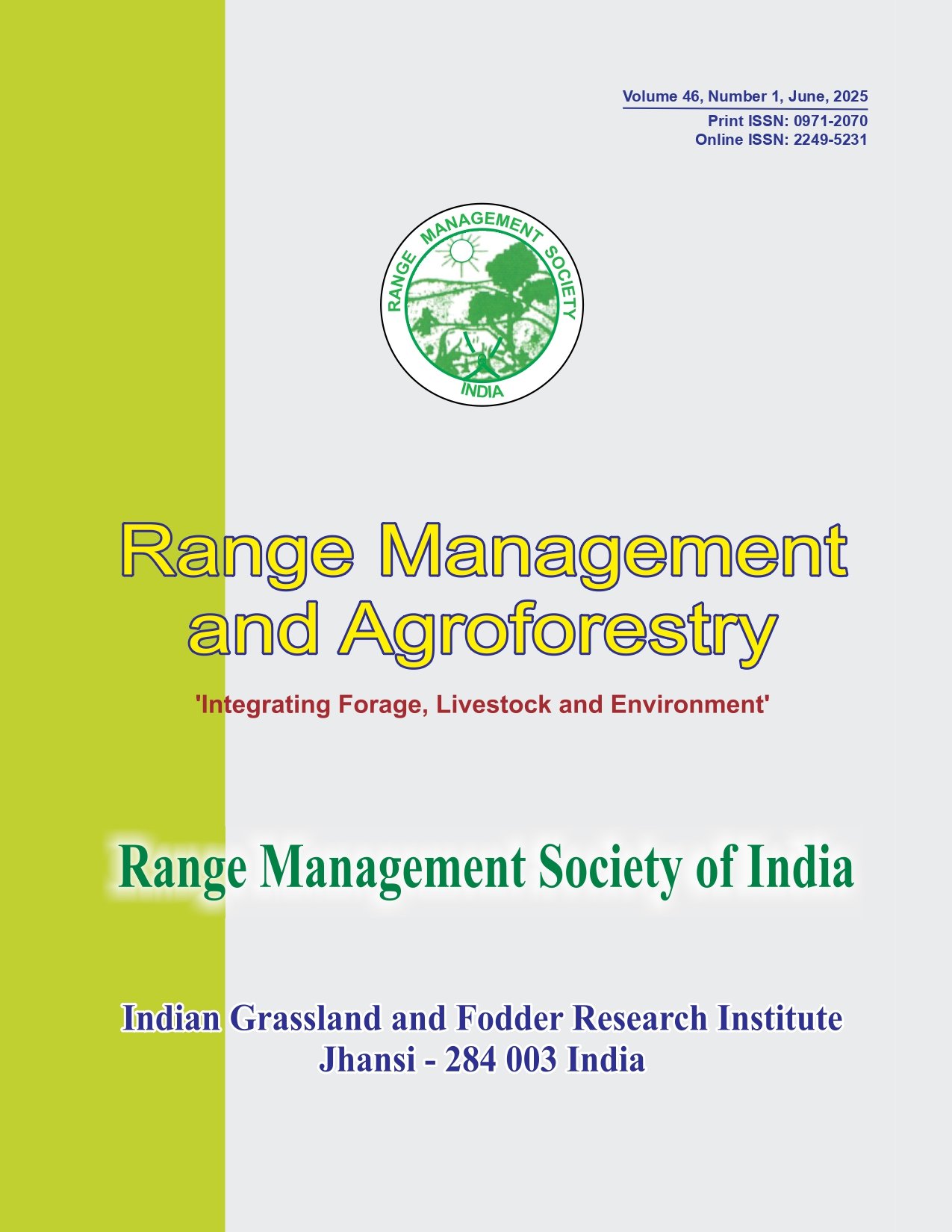Genetic improvement of dominant tropical Indian range grasses
Keywords:
Apomixis, Biotechnological approach, Genetic improvement, Range grassesAbstract
Grassland and rangeland ecosystems play a major role in livestock productivity, livelihood and rural economics in India. These grasslands are under heavy grazing pressures and have deteriorated to a large extent and needs rejuvenation. India holds rich diversity of native grasses. Various problems encountered especially in rangeland grasses genetic improvement with multiple objectives including breeding for yield, quality, antinutritional factors, abiotic stress etc. have been elaborated. Problems of polyploidy and apomictic breeding nature of most of the perennial grasses of high forage value were also presented with possible advancement through biotechnological approach, search for sexual lines etc. The recent advances in apomixis have offered unlimited potential in developing superior varieties where heterosis and heterozygosity can be fixed leading to next generation revolution. The article provides the advances made in a few selected important grasses of arid and semi-arid regions including a list of cultivars of the grass varieties released in India.




